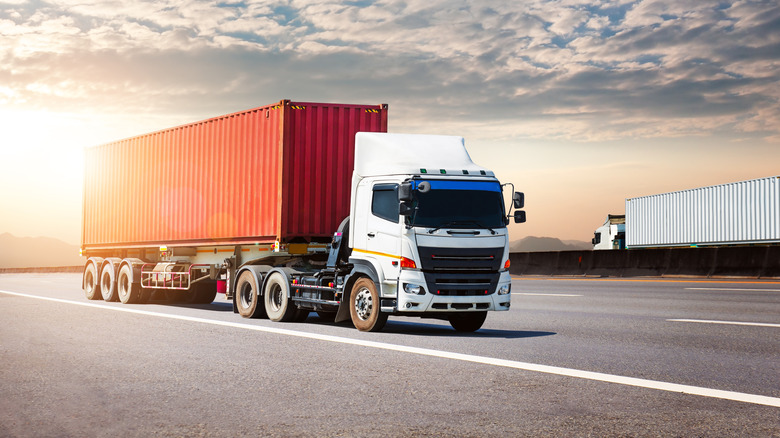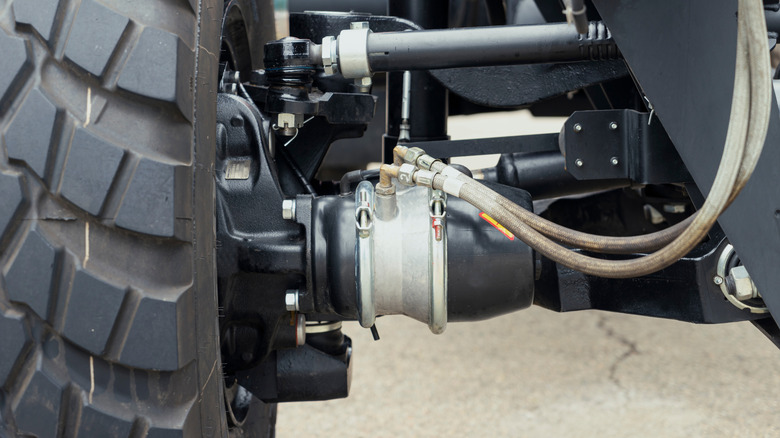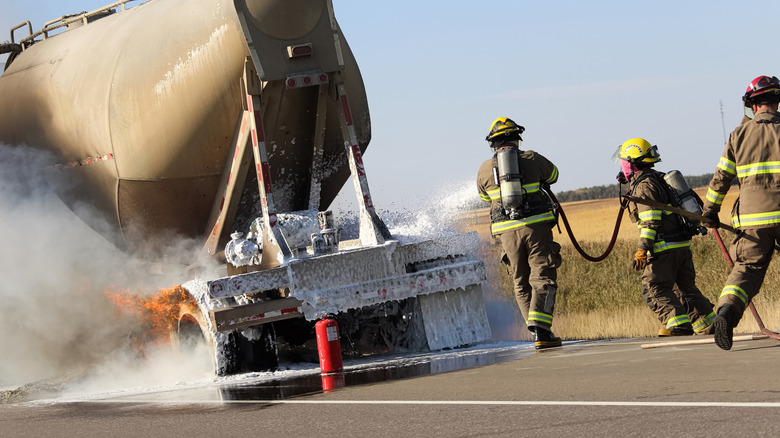Why Do Semi-Trucks Screech When They Brake?
Among the reasons someone might want to avoid passing a semi-truck is to steer clear of that harsh piercing screech it makes when slowing down. That sound is referred to as brake squeal, and although it may be unsettling the first few times you hear it, it's not necessarily a sign of imminent failure. It's actually a phenomenon that can be explained with a little physics. Studies show the noise comes from stick-slip friction, where the brake shoes temporarily stick to the rotating brake drum before slipping free again.
Each cycle repeats very rapidly, producing the high-frequency vibration between 1 and 16 kilohertz that's easily heard within the immediate vicinity of a semi-truck braking. Because semi-trucks carry heavy loads, the stress on their brakes makes vibrations more pronounced, creating a louder, high-pitched squeal typically heard from big rigs. Several issues can cause this distinct noise, including worn brake shoes, trapped debris, warped drums, or poor machining.
The mechanical issues behind semi-truck brake screeching
Semi-trucks typically employ hollow, bowl-shaped, drum-styled brakes as opposed to disc varieties. The brake shoes press outward against the inner walls of the spinning drum and generate resistance that slows the truck. Like with any vehicle, a brake system wears down over time, and this wear can disrupt normal operation, leading to the high-pitched squeal. One of the most common things is to check for worn-out brake shoes. When the friction lining of the shoe reaches its minimum thickness, a built-in wear indicator scrapes against the drum, creating a loud squeal, letting drivers know it's time for a change. Heat can be another cause.
Repeated heavy braking can cause glazing, where the friction material hardens into a smooth, glass-like surface and reduces grip, leading to the continuous high-pitched noise. When moisture builds up, it can rust brake drums, especially if a vehicle has been sitting for a long period. When this happens, the brakes will squeal until the rust burns off. If a mechanic performs a poor installation job or if the drum is poorly machined, it could create an uneven stopping surface for the shoes, leading to squealing, and worse, inefficient braking. These mechanical issues make braking inefficient and increase the risk of brake failure during heavy loads.
Why screeching matters more on heavy trucks
Unlike smaller vehicles, semi-trucks use complex air brake systems designed to bring loads weighing up to 80,000 pounds to a complete stop. When this happens, the squealing sound you hear is louder and potentially comes with more danger. Continuous squealing could point to uneven pressure inside air chambers of the truck's air brakes or lopsided brake shoes, creating irregular contact with the drums.
Components with poor lubrication or missing shims may also create friction points that cause squealing and reduce brake effectiveness. That kind of wear does more than make that notable screech; it also will take the truck longer to stop, put extra stress on other parts of the system, and raise the risk of brake fade on long downhill grades.
These dangerous situations are the reason why commercial fleets emphasize inspection schedules, lubrication routines, and air pressure checks to ensure the system is working the way it should. As a truck driver, getting to know your vehicle is crucial. Keeping up with maintenance will help narrow down exactly why brakes are screeching and know if it's a normal sound or a warning that you need to get repairs done immediately.


